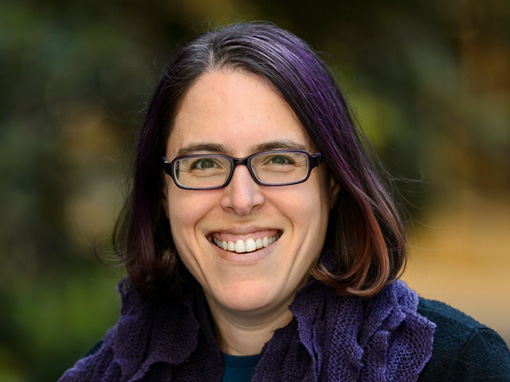The luminaries of the Australian media scene swan in and out of the conference. Eric Beecher, youngest editor of the SMH ever then founder of Text Media (and hence once my ex-big boss) and now of course owner of Crikey; Mike van Niekerk, online chief at Fairfax (and the man who head-hunted me for The Age); Karim Temsamani, now General Manager of Google Australia and New Zealand, once group manager at Fairfax Magazines and hence my ex-big boss; now on stage, Mark Scott, now Managing Director of the ABC and once Deputy Editor of The Age and hence the man who hauled me over the coals for a freelance writer’s conflict-of-interest indiscretion. I’ve met these men fleetingly, if at all (Karim was a voice on the phone, once). I want to speak to them in the breaks but apart from Eric Beecher, they flit in to present and then leave, far too important to stay and network.
I am fascinated to listen to their pearls of wisdom. I am inspired and yet wistful that I feel myself so strongly to be an outsider again. Then in the break, I find myself chatting to Tiy Chung, communications director for Greenpeace, or Jenny Farrar, from the MEAA who’s going to Switzerland on Saturday to cover the nuclear non-proliferation treaty because she’s involved with Mayors for Peace.
Back to listening to this session though. Newspapers are dead, apparently. And everything else is converging. So far, old news.
Quote of the day, Roy Greenslade on Andrew Jaspan, editor of the Age: “I used to work with him at the Sunday Times in London. I’ve been following his career and I’m aghast at a man of such limited talent rising so high.”
Facts of interest:
- The Guardian has more readers in the US than in the UK
- Australian online sites don’t care about being flooded with links from Boing Boing or Drudge because Nielsen only measures Australian clicks and that’s what the advertisers want.
- The major sites are all redesigning their story/article pages and see them as more important than the home page because that’s the most likely point of site entry now, thanks to blogs, aggregation sites, RSS feeds, newsletters.
- There is no longer a national conversation in the home, that the newspaper used to engender — Roy Greenslade again
- Every minute of every day, 10 hours of video are uploaded to YouTube.
- Teens attitude: if news is important enough, it will find me.
- 10-25% of the net has changed every time Google indexes it.
- Google paid $4.5b in adsense revenue last year (? not sure of the timeframe)
- Mark Scott believes that many viewers came to Summer Heights High through MySpace *because* they gave the characters MySpace pages and referred to it in episode 1. But how can this apply to journalism?
- Max Uechtritz makes a distinction between quality journalism and ‘good tabloid journalism’. He says growing the audience is vital because proprietors will fund good journalism if the numbers are there, so whether you get the numbers through Facebook doesn’t matter because in the end you are still being able to fund the good quality journalism.
- Newspapers have lost money over many periods but are sustained by being part of diverse groups such as the Financian Times surviving because it was part of Pearson. — Roy Greenslade.
- Washington Post now only makes 10% of earnings for the WP organisation. It now makes most of its money from education but the Post is still the spiritual core of the organisation. — Mark Scott.
- Five years ago, 75% of Fairfax earnings was from Herald/The Age. Now it’s around 25% but bulk is still from print.
- Video is the next big thing.
- Mark Scott is really on the ball and I’m very impressed with him. “As editor you know a little bit, the newsroom knows a bit more, but the readership knows the whole story. We’ll always be broadcasting but increasingly we’re going to host the conversation. We recognise that we are no longer the broadcaster as oracle, particularly with younger audiences who want to be participants.
Still going to have reporters, but we’re also going to have space. People want to contribute and be part of the media experience. If you can manage that and complement it with the journalism you’re doing, it can add up to more than what you were as the oracle.”
Most hated word of the day: Monetise.
